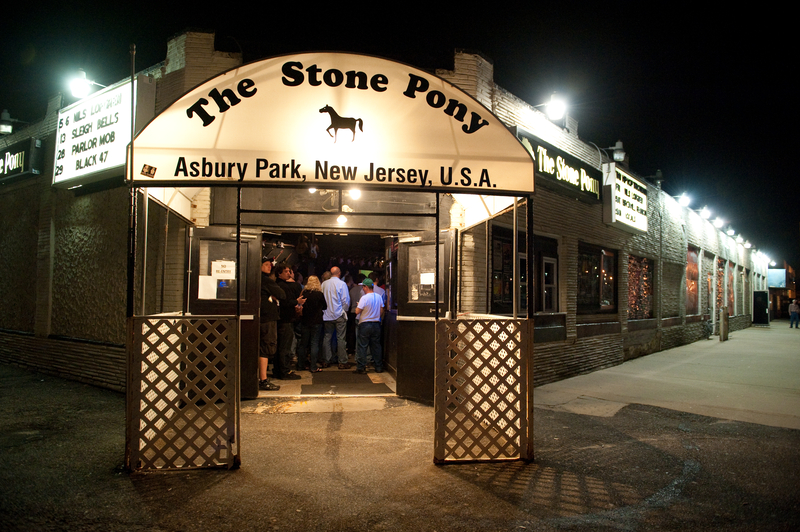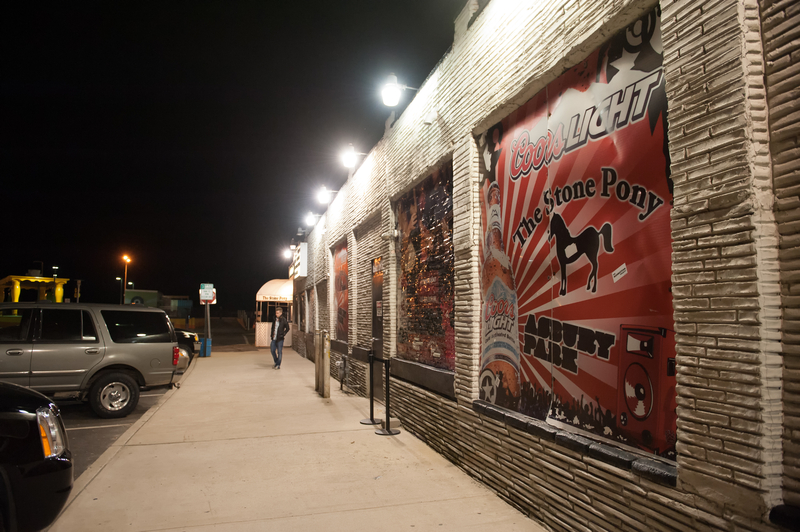In the landscape of American music history, few venues stand out as much as Asbury Park’s Stone Pony. Located in the iconic Jersey Shore town of Asbury Park, New Jersey, the Stone Pony has played host to some of the most significant names in rock, punk, and folk music since its establishment in 1974. It’s not just a venue; it’s a symbol of American musical heritage, a place where new artists aspire to perform and where legendary musicians often return.
The Stone Pony was founded by Jack Roig and Robert “Butch” Pielka, two visionaries who saw the potential of a small venue in a post-industrial beach town. Opening its doors in February 1974, the bar started as a modest venue with a stage no bigger than a postage stamp. Despite its humble beginnings, the club was well-positioned to benefit from the rock ‘n’ roll culture that was rapidly proliferating along the East Coast at the time. The venue’s timing was fortuitous, coinciding with the emergence of Bruce Springsteen and the E Street Band as global superstars.
While he didn’t get his start at the Stone Pony, Bruce Springsteen’s relationship with the venue is legendary. “The Boss,” a native of nearby Freehold, became a regular fixture at the Stone Pony, often appearing in impromptu performances that solidified the venue’s reputation as a hub for quality music. These legendary shows helped catapult the venue into the national spotlight, as fans from around the country would make the pilgrimage to Asbury Park in hopes of catching an unexpected Springsteen show.

The 1980s and ’90s were a turbulent time for the Stone Pony. Changes in ownership, financial struggles, and the shifting tides of musical tastes led to periods of closure and uncertainty. However, the venue was resilient. In the late ’90s and early 2000s, it experienced a resurgence, thanks in part to a renewed interest in live music and the revival of Asbury Park as a tourist destination. Iconic bands like Blondie, The Ramones, and Patti Smith graced its stage during this period, adding to the venue’s illustrious history.
One of the significant turning points for the venue was the introduction of the Stone Pony Summer Stage in 2005. This outdoor stage allowed for larger crowds and bigger acts, expanding the Stone Pony’s reach and impact. Today, the Summer Stage hosts a wide variety of artists, from indie bands to hip-hop acts, further cementing the venue’s legacy as a mecca for music lovers.
The Stone Pony is more than just a music venue; it’s a community institution. Over the years, it has played a crucial role in Asbury Park’s revitalization efforts, bringing in tourism and acting as an anchor for other local businesses. Its walls, covered in memorabilia, tell a visual story of its history and the many legendary performances that have occurred there. Moreover, the venue continues to serve as a launching pad for emerging talent, nurturing the next generation of musical superstars.
From its humble beginnings in 1974 to its status today as one of America’s most iconic music venues, the Stone Pony in Asbury Park is a testament to the enduring power of live music and community. Whether you’re an aspiring musician looking to launch your career or a die-hard fan hoping to catch a once-in-a-lifetime performance, the Stone Pony promises an experience steeped in musical history and tradition. It’s not just a venue; it’s a living, breathing monument to the po
